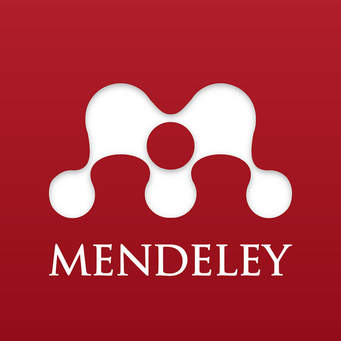Description of Intake of Macronutrients, Antioxidants, and Nutritional Status in Breast Cancer Patients with Chemotherapy
Abstract
Background: Breast cancer is when the growth of cells in the breast glands is fast and abnormal, so these cells lose their standard control and function and form a lump.
Research Methods: The type of research used was descriptive research with a cross-sectional research design using a proportion sampling technique. The sample in this study totaled 36 people using a questionnaire and a food recall form.
Research Result: The results of the study showed that from 36 respondents, it was found that the respondent's energy intake (52.8%) was less than the requirement, the respondent's protein intake (61.1%) was less than the requirement, the respondent's fat intake (72.2%) was good, the respondent's carbohydrate intake ( 61.1%) less than needed, respondent's vitamin A intake (69.4%) is lacking, respondent's vitamin C intake (50.0%) is lacking, respondent's vitamin E intake (80.6%) is less than requirement.
Conclusion: Breast cancer patients receiving chemotherapy at RSI Siti Khadijah experience decreased appetite, nausea, and vomiting, resulting in an imbalance of nutrients. It is recommended that cancer patients undergoing chemotherapy pay more attention to various foods, especially vegetable and fruit foods that contribute to vitamins A, C, and E, so that nutritional imbalances do not occur.
Keywords
Full Text:
PDFReferences
Cakrawati, Dewi and NH, M. (2011) Food Ingredients, Nutrition and Health. Bandung: Alfabeta.
Dinkes Palembang (2018) South Sumatra Province Health Profile. Palembang.
Globocan (2020) ‘Cancer Incident in Indonesia’, International Agency for Research on Cancer, 858, pp. 1–2.Available at: https://gco.iarc.fr/today/data/fact sheets/populations/360- indonesia-fact-sheets.pdf.
Habsari, A. (2017) ‘The Relationship between Several Nutritional Factors and Chemotherapy with the Nutritional Status of Cancer Patients (Case Study in the Outpatient Installation of the Oncology Polyclinic at Dr. Soehadi Prijonegoro Hospital, Sragen Regency, 2017)', Journal of Public Health (e-Journal), 5(4), pp. 593–599.
Hidayat, A., Purwani, L.E. and Nugrohowati, N. (2020) ‘The Relationship Between Chemotherapy and Energy Intake and the Nutritional Status of Stage Ii and III Breast Cancer Patients at Fatmawati Hospital, Jakarta in 2018 2018-2019
Relationship of Chemotherapy and Energy Intake with Nutritional Status of Breast Cancer Patients Stage’, Media Gizi Indonesia, 15(2), p. 110. Available at: https://doi.org/10.20473/mgi.v15 i2.110-118.
National Cancer Management Committee (2017) National Guidelines for Breast Cancer Medical Services.
Kusumawardani, N. (2016) ‘Nutrition Management for Cancer Patients By', Lltbangkea Media, VI(04), pp. 10–15. Available at: http://ejournal.litbang.kemkes.go.id/index.php/MPK/article/downl oad/940/812.
Merisca, A. hariza (2018) Description of Antioxidant Intake in Cancer Patients Undergoing Chemotherapy at Siti Khadijah Islamic Hospital, Palembang 2018.
Ni nyoman, A. (2018) ‘Chemotherapy Frequency Can Reduce Nutrient Intake and Nutritional Status in Breast Cancer Patients in Class III Treatment Rooms at Sanglah Hospital Denpasar’, Jurnal Skala Husada : the Journal of Health, 14(1), pp. 1–14. Available at: https://doi.org/10.33992/jsh:tjoh. v14i1.6.
Ningrum, D.A.R. (2015) ‘The Effect of Chemotherapy on Food Intake and Nutritional Status of Nasopharyngeal Cancer Patients in the Inpatient Room at RSUD Dr. Moewardi Surakarta', Muhammadiyah University of Surakarta, pp. 1–14.
Nurahmatika, P., Bintanah, S. and Kusuma, H.S. (2017) ‘The Relationship between Protein, Vitamin A, Vitamin E and Zinc Intake with Albumin Levels in Breast Cancer Patients at Tugurejo Hospital Semarang', Proceedings of the National Seminar Publication of Research Results and Community Service, (September), pp. 286–296.
Parwata, M.O.A. (2016) ‘Antioxidants', Applied Chemistry, Udayana University Postgraduate Program, (April), pp. 1–54.
Prabandari, F. and Fajarsari (2016) ‘Factors that influence the incidence of breast cancer at RSU Dadi Keluarga Purwokerto’.
Putri, S., Adriani, M. and Estuningsih, Y. (2019) ‘The Relationship Between Appetite and Energy and Protein Intake in Post-Chemotherapy Breast Cancer Patients [Correlation between Appetite with Energy and Protein Intake of Post Chemotherapy Breast Cancer Patients]
’, Media Gizi Indonesia, 14(2), p. 170. Available at: https://doi.org/10.20473/mgi.v14 i2.170-176.
Sari, M. (2014) ‘The Relationship between Breast Cancer Stage and Depression at RSUD dr. Zainoel Abidin Banda Aceh', Syiah Kuala University [Preprint].
Sartono, Terati and Nazarena, Y. (2014) ‘Analysis of nutritional intake (energy, protein), antioxidant intake (vitamins A and C) and nutritional status of cervical cancer patients undergoing chemotherapy at RSUP Dr. Mohammad Husein Palembang', Department of Nutrition, Palembang Health Polytechnic, 1(13).
Tadja, Y.P. (2019) Description of fat, protein intake and nutritional status in breast cancer patients in the inpatient room at RSUD.prof.dr.w.z. Johannes Kupang. Kupang Ministry of Health Polytechnic.
Trijayanti, E. and Probosari, E. (2016) ‘The Relationship between Food Intake and Nutritional Status in Post-Chemotherapy Cervical Cancer Patients', Diponegoro Medical Journal, 5(4), pp. 751–760. Available at: http://ejournal- s1.undip.ac.id/index.php/medico.
DOI: https://doi.org/10.32807/jgp.v8i2.413
Refbacks
- There are currently no refbacks.
Copyright (c) 2023 Jurnal Gizi Prima (Prime Nutrition Journal)

This work is licensed under a Creative Commons Attribution-ShareAlike 4.0 International License.
Address:
Jurnal Gizi Prima (Prime Nutrition Journal) 2656-2480 Kampus A Poltekkes Kemenkes Mataram, Jurusan Gizi, Jl. Praburangkasari Dasan Cermen Sandubaya Mataram.





